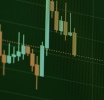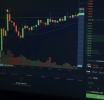Binary Options vs. Traditional Stock Trading

Binary Options vs. Traditional Stock Trading
In the realm of financial markets, investors have a plethora of choices when it comes to trading instruments.
Two popular avenues are binary options and traditional stock trading. Binary options are a simplified form of trading that involves predicting whether an asset’s price will be higher or lower at a specific time, while traditional stock trading involves buying and selling shares in companies with the aim to profit from price changes over time.
Understanding the key differences and benefits between these two methods is crucial for traders to make informed decisions that align with their financial goals and risk tolerance.
Two popular avenues are binary options and traditional stock trading. Binary options are a simplified form of trading that involves predicting whether an asset’s price will be higher or lower at a specific time, while traditional stock trading involves buying and selling shares in companies with the aim to profit from price changes over time.
Understanding the key differences and benefits between these two methods is crucial for traders to make informed decisions that align with their financial goals and risk tolerance.

Binary Options vs. Traditional Stock Trading
Fundamental Concepts
Definition of Binary OptionsBinary options are financial derivatives that offer a fixed payout based on a yes/no proposition related to the price movement of an underlying asset, such as stocks, commodities, or currencies. The term “binary” refers to the two possible outcomes: either the prediction is correct, resulting in a fixed return, or it is incorrect, leading to a loss of the invested amount. Typically, binary options have short expiration times ranging from minutes to hours.
Definition of Traditional Stock Trading
Traditional stock trading involves purchasing shares of publicly traded companies on stock exchanges like the New York Stock Exchange (NYSE) or NASDAQ. Investors buy stocks with the expectation that their value will increase over time, allowing them to sell at a profit later. This method requires continual market analysis, strategic planning, and often involves holding assets for extended periods.
Comparison of Risk and Reward
Risk Levels in Binary Options vs. Traditional StocksBinary options are inherently high-risk due to their all-or-nothing nature—traders either gain a predetermined profit or lose their entire investment based on the accuracy of their prediction within a set timeframe. This makes them highly speculative.
In contrast, traditional stock trading carries its own risks but tends to be less volatile over short periods compared to binary options. Risks include market fluctuations, economic factors, company performance, and global events affecting stock prices.
Potential Rewards in Both Trading Methods
Binary options can offer substantial returns quickly if traders correctly predict market movements; some platforms offer payouts as high as 70-90% on successful trades within minutes or hours.On the other hand, traditional stock trading rewards investors through capital appreciation (the increase in stock value) and dividends (periodic payments made by profitable companies). While returns might take longer to materialize compared to binary options, they can potentially be more sustainable over time.
Accessibility and Complexity
Ease of Access for Beginners in Both MarketsBinary options are often marketed as accessible entry points for novice traders due to their simplicity—decide whether an asset’s price will rise or fall within a specified period without needing extensive market knowledge.
Traditional stock trading usually requires more initial research into company fundamentals, historical performance data analysis, understanding economic indicators affecting markets globally before making informed decisions on what stocks could yield profits long-term making it slightly intimidating initially especially without prior experience financial markets overall complexity involved here compared simplistic nature binary trades mentioned earlier sections above!
Complexity Involved In Analyzing And Making Decisions
In-depth analysis required identifying profitable opportunities longer-term investments using technical fundamental analyses forecasting future trends potentially impacting individual assets portfolios managed professionally institutions alike! Conversely straightforward predictions rise/fall underlying assets specific times significantly lower barrier entry understanding needed comprehensively maximize profitability consistently engaging either side these spectrum investing activities financial success story unfolds differently depending chosen path commitment towards achieving desired outcomes envisioned personal circumstances dictated unique perspectives experiences shaping journey traversed ahead!
Summarizing critical differences outlined essay highlighted distinct approaches taken leveraging respective strengths weaknesses inherent each methodology discussed context broader implications achieving desired results ultimately boils down individual preferences alongside comfort levels embracing associated risks embarking upon ventures navigating complex landscapes defining modern-day financial ecosystems characterized unprecedented dynamism constantly evolving paradigms redefining norms expectations stakeholders involved every step way…
Final thoughts suggest aspiring traders carefully consider objectives align strategies accordingly ensure best-suited methods chosen maximizing potential returns minimizing exposure unnecessary pitfalls inherent dynamic ever-changing world finance investments!
Binary options, Stock trading, Investment strategies, Financial markets, Risk management
Final thoughts suggest aspiring traders carefully consider objectives align strategies accordingly ensure best-suited methods chosen maximizing potential returns minimizing exposure unnecessary pitfalls inherent dynamic ever-changing world finance investments!
Binary options, Stock trading, Investment strategies, Financial markets, Risk management














Report
My comments